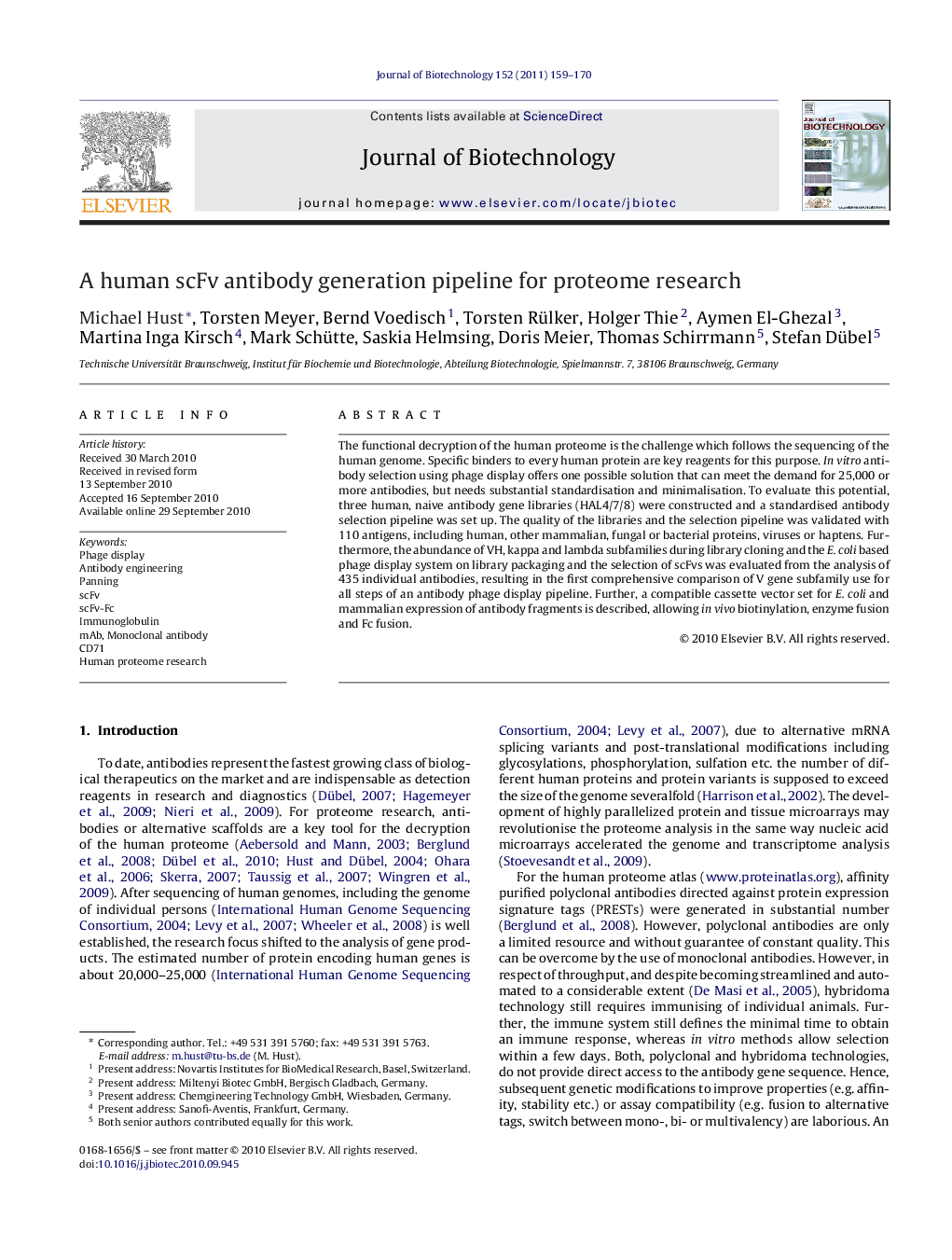| Article ID | Journal | Published Year | Pages | File Type |
|---|---|---|---|---|
| 24041 | Journal of Biotechnology | 2011 | 12 Pages |
The functional decryption of the human proteome is the challenge which follows the sequencing of the human genome. Specific binders to every human protein are key reagents for this purpose. In vitro antibody selection using phage display offers one possible solution that can meet the demand for 25,000 or more antibodies, but needs substantial standardisation and minimalisation. To evaluate this potential, three human, naive antibody gene libraries (HAL4/7/8) were constructed and a standardised antibody selection pipeline was set up. The quality of the libraries and the selection pipeline was validated with 110 antigens, including human, other mammalian, fungal or bacterial proteins, viruses or haptens. Furthermore, the abundance of VH, kappa and lambda subfamilies during library cloning and the E. coli based phage display system on library packaging and the selection of scFvs was evaluated from the analysis of 435 individual antibodies, resulting in the first comprehensive comparison of V gene subfamily use for all steps of an antibody phage display pipeline. Further, a compatible cassette vector set for E. coli and mammalian expression of antibody fragments is described, allowing in vivo biotinylation, enzyme fusion and Fc fusion.
